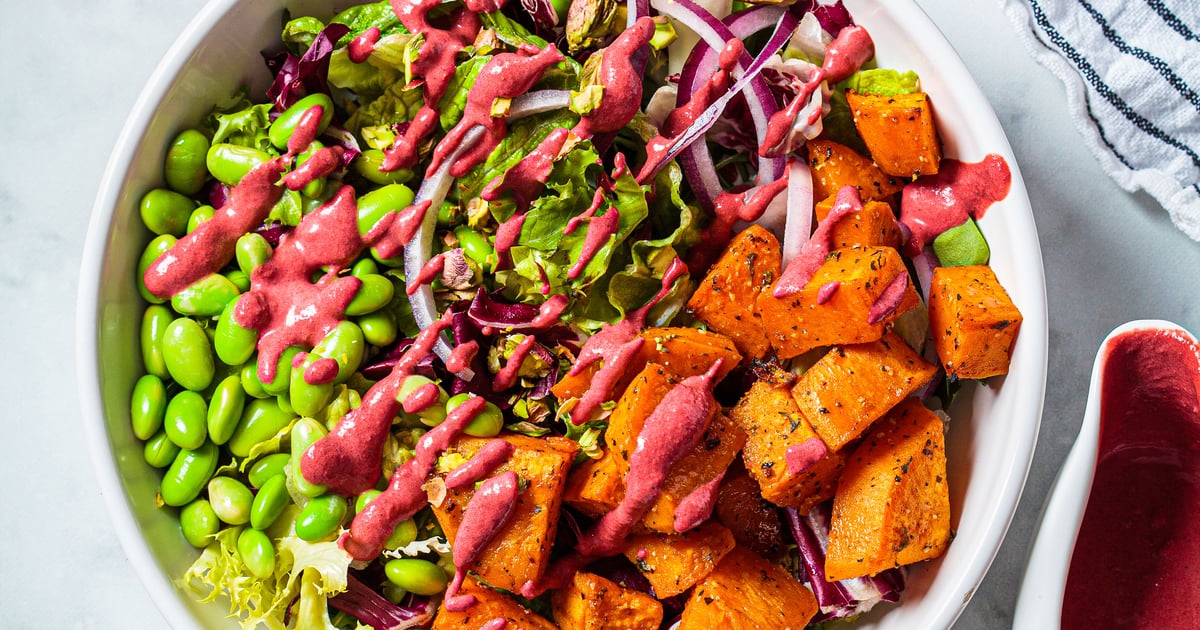Popular Whole30 Program exists since 2009, but there was no specific program for those following a vegetarian diet or vegetarian diet – up to now. The new Plant-Based Whole30 Program just launched, and it’s perfect for those who don’t eat meat or eggs, but still want to get the benefits of trying Whole30.
As with the original Whole30 program, this is a reset or elimination diet designed to help you determine food sensitivities (such as dairy products or gluten), or find out which foods may not be making you feel your best (such as sugar).
Some differences between the original Whole30 and Whole30 plant-based programs are that beans, peanuts, and soy products are on the yes list! Read on for the details of what you can and can’t eat on a Whole30 plant-based diet, the Whole30 plant-based rules, and what to do at the end of the 30-day reintroduction phase.
What foods to eat on the plant-based Whole30 program?
- Vegetables (includes potatoes and pumpkin)
- Fruits (fresh and dried)
- Legumes, lentils, peas (includes hummus)
- Minimally processed forms of soy (edamame, tofu, tempeh, miso, unsweetened soy milk, and soy yogurt)
- Nuts and seeds (includes almond flour, coconut flour, nut butter, and tahini)
- Natural plant-based fats (includes avocado, coconut milk, and olive, coconut, and avocado oils)
- Whole forms of plant-based protein powders (pea, hemp, pumpkin and chia)
- Minimally processed plant-based meats (approved brands include Abbot’s Butcher and Big Mountain Foods)
- Minimally processed non-dairy products (includes unsweetened non-dairy milks, yogurt, cream, and cheese)
- Herbs, spices, and seasonings, as well as nutritional yeast, hot sauce, coconut aminos, vinegar, and fruit juice.
What foods should be avoided on the plant-based Whole30 program?
- Animal protein (meat, poultry, fish, shellfish, eggs, or collagen)
- Dairy products (milk, butter, yogurt, sour cream, ice cream, ghee, clarified butter)
- Cereals (oats, wheat, millet, corn, rice, barley, bulgur, sorghum, quinoa, buckwheat, and amaranth)
- Highly processed forms of soy (soy oil, textured soy protein, textured vegetable protein, soy protein isolate, soy protein concentrate, and soy flour)
- Added sugar, real or artificial (including but not limited to white or brown sugar, maple syrup, honey, coconut sugar, agave, date syrup, stevia, monk fruit, and xylitol)
- Alcohol
- Carrageenan or added sulfites
What are the plant-based Whole30 rules?
The Plant-Based Whole30 Rules they are very simple
- For 30 days, eat the foods on the approved list and eliminate the foods on the list of foods to avoid.
- You may not recreate baked goods, treats, or “brake-free foods” using foods on the approved list. That means no bread or tortillas made with almond flour, ice cream made with fruit and vegetable milkor brownies made with banana and almond butter. This also means not vegan pizza dough made from cauliflower, waffles made with grated potatoes and pancakes, cookies or muffins made with coconut flour. Skip the potato chips, deep-fried potato chips, and any compliant foods you already know personally promote cravings or mindless overconsumption (such as dried fruit, nuts, or nut butters).
- And for the entire 30 days, you are not allowed to step on a scale or take body measurements. Whole30 is about so much more than losing weight, and they want you to focus on the other health benefits you’ll hopefully experience, like increased energy or better digestion.
Plant-Based Whole30 Reintroduction Phase
After the 30-day elimination portion of the Plant-Based Whole30, which is known as phase one, you’ll enter phase two, a six- to 30-day period of reintroduction. This is the period when you take back the foods you have eliminated, one at a time, to see how your body reacts. You can choose to reintroduce only non-animal products, such as grains and sweeteners. Or if you are not vegan or vegetarian, you can choose to include animal products in your reintroduction phase, it’s up to you!
Plant-Based Whole30 Resources
window.fbAsyncInit = function() {
FB.init({
appId : ‘175338224756’,
status : true, // check login status
xfbml : true, // parse XFBML
version : ‘v8.0’
});
ONSUGAR.Event.fire(‘fb:loaded’);
};
// Load the SDK Asynchronously
(function(d){
var id = ‘facebook-jssdk’; if (d.getElementById(id)) {return;}
if (typeof scriptsList !== “undefined”) {
scriptsList.push({‘src’: ‘https://connect.facebook.net/en_US/sdk.js’, ‘attrs’: {‘id’:id, ‘async’: true}});
}
}(document));
